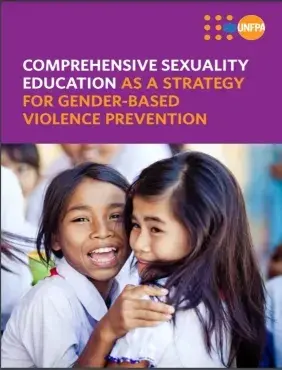Executive Summary
The recent decade has shown a significant investment and interest in programming to prevent gender-based violence and research on what works to reduce the prevalence, frequency and severity of GBV (WHO, 2019a). A review of global evidence on GBV prevention interventions found fair evidence to recommend gender transformative work, including communication and relationship skills; group education with community mobilisation; interventions to address alcohol abuse; promising evidence for whole-school approaches; and conflicting and insufficient evidence on school curriculum-based interventions (in combination with community outreach) (Fulu and Kerr-Wilson, 2015). The RESPECT Women Framework to prevent violence against women includes strategies to improve skills in interpersonal communication, conflict management and shared decision-making; social empowerment strategies including those that build skills in self-efficacy, assertiveness, negotiation and self-confidence; strategies that prevent child and adolescent abuse; and strategies that challenge and transform harmful gender attitudes, beliefs, norms and stereotypes (WHO, 2019a). The last decade has also seen growing recognition of Comprehensive Sexuality Education (CSE) as a critical part of young people’s education and increasing efforts to implement it globally and across the Asia Pacific region. Many of the core qualities of CSE according to the International Technical Guidance on Sexuality Education (ITGSE) indicate its potential to contribute to GBV prevention considering the above-cited evidence of what works and recommended strategies. Namely, 1) it is based on gender equality and explicitly recognises the effects of gender and power on relationships, fosters critical thinking and personal reflection about gender norms and power; and encourages the development of respectful and equitable relationships; 2) it is human-rights based; 3) it builds life skills, including those needed to form respectful relationships; 4) it is comprehensive and covers a full range of topics related to human sexuality, rights, gender and violence; and 5) it is transformative, encouraging a fair and compassionate society. In terms of content, seven of the eight key concepts of sexuality education outlined in the ITGSE are linked to the prevention of GBV, including relationships; values, human rights, culture and sexuality; understanding gender; violence and staying safe; skills for health and wellbeing; sexuality and sexual behaviour; and sexual and reproductive health. The literature review conducted for this paper, however, found no evidence on the effectiveness of CSE on the perpetration or experience of violence and very limited, often weak evidence, on its effectiveness on risk and protective factors for GBV. One reason for this is that longitudinal studies have yet to be done of the impact of CSE on violence or other outcomes. There have also been no studies of the key components, essential elements or characteristics of effective gender-transformative and rights-based CSE programmes in general (UNESCO, 2016) or on GBV-related components. Therefore, there is a lack of understanding of the components, content, methods, and dosage needed to achieve the prevention of GBV through CSE. The evidence base for the prevention of GBV in young people is also limited.


